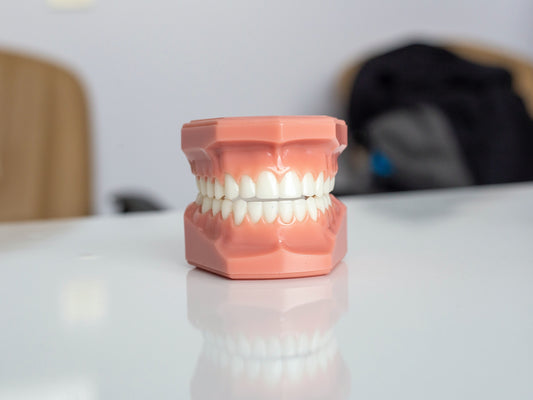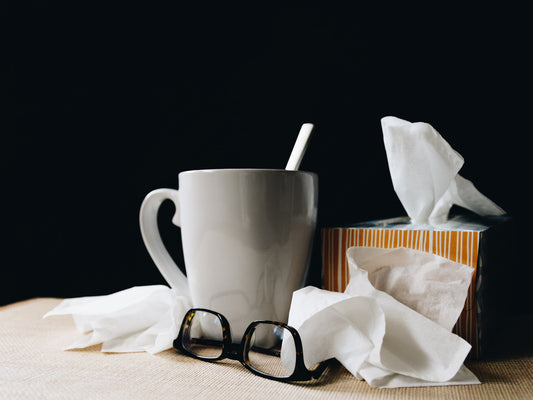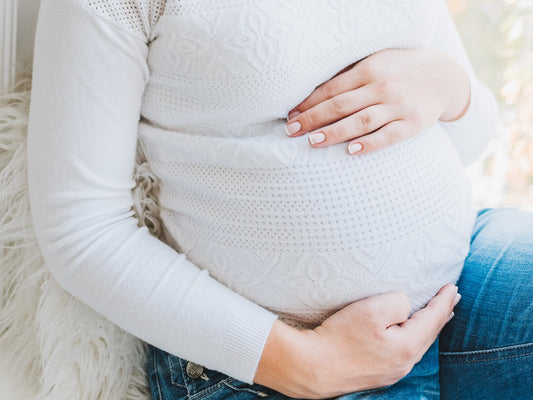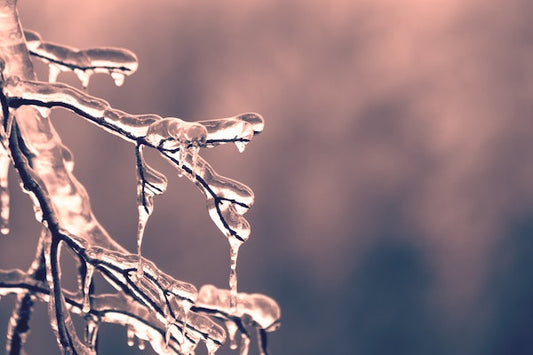Can Dehydration Cause Diarrhea?
Diarrhea is a health concern, but what does it have to do with hydration? Are dehydration and diarrhea closely linked? Can dehydration cause diarrhea? There's so many questions, and we will try to answer them all.
Scientifically-speaking, diarrhea is an increased frequency and fluidity in our poop. But we really know it as an unfortunate inconvenience that restricts our ability to go about our day. To say the least, it’s uncomfortable, unpredictable, and of an urgent nature. Most significantly, diarrhea causes you to lose a lot of fluid.

Every time you lose fluid and don’t replenish it, you’re one step closer to dehydration. Diarrhea is no exception—it can have an effect on hydration status and healthy electrolyte levels. Electrolytes are charged particles (such as potassium and sodium ions) that ensure the smooth running of our bodies by maintaining healthy levels of fluid inside and outside our cells [1].
Electrolytes and water levels within the body go hand-in-hand. If we lose water from the body we also lose electrolytes. So, when you have diarrhea, you lose electrolytes and water. But before we look at the effects of diarrhea let’s look at why we get diarrhea in the first place.
Why do we get Diarrhea?

Diarrhea is a disruption in the normal movement of water and electrolytes in the gut. Electrolytes move via small channels or by tiny protein pumps in the gut cells. Water then moves by osmosis from areas of low electrolyte concentration to areas of high electrolyte concentration [2]. Think of it like how a paper towel draws up water from the table. In just the same way, the electrolytes (which are all ions) move water inside the body or can expel it into the gut as happens in diarrhea. When this functions properly, as fluid enters the small intestine, 90% is absorbed helping to hydrate us properly [3].
Causes of diarrhea can be split into a number of categories. Firstly, it may be a sign of bacterial infection in the gut. The bacteria Escherichia coli, for example, causes disease in 75,000 people in the US every year [4]. This bacteria produces two toxins, one of which opens an electrolyte channel in the cells of the gut. This leads to the loss of ions from the body. The other bacteria-produced toxin causes the insertion of a channel into the gut membrane cells, through which more ions are lost from the body [5]. The movement of ions into the gut then draws out water from the body, causing large volumes of liquid to be lost during diarrhea.
Viral infections may similarly upset the balance of ions and water in the gut, causing diarrhea [6]. Such infections may be rotavirus, similar to the bugs that give you a sore throat during the cold season. Additionally, diarrhea can be caused by a medical condition of the gut such as Crohn’s disease, Coeliac disease, food intolerance, or irritable bowel syndrome [7].
There is some evidence to suggest that spicy food has an effect on your digestion. Capsaicin, which you can find in peppers, and other spicy molecules are irritants to your gut, and may cause inflammation. This can lead to loose stools and diarrhea, causing you to become dehydrated through loss of water in your stool.[8]
Dehydration and Diarrhea
![]()
Diarrhea can cause electrolyte imbalances and dehydration. In a study of 57 children admitted to a pediatric ward with diarrhea and dehydration, researchers found that 56% of the children had low sodium levels and 46% had low potassium levels [9]. This may lead to one feeling tired as well as a drop in physical and mental performance.
Dehydration caused by diarrhea can first be associated with thirst and a dry mouth. As it worsens over time, it may lead to feelings of restless and irritability, as well as headaches, dizziness, dry skin, and weakness [10].
Stop dehydration before it happens by adding a pack of Hydrant to your next glass of water.
Other stories about dehydration
If you want to read more about what dehydration does to the human body, click here.
Is your routine dehydrating?
Are you concerned about your own hydration levels? Take the quiz below to find the best Hydrant for your hydration routine.
Writer: James Gunnell
Editor: Elizabeth Trelstad, www.hellobeaker.com



























